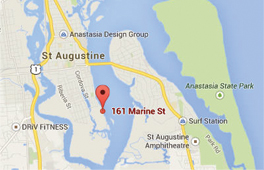Rising Obesity in Seniors Burdens Caregiver Systems
Rising Obesity in Seniors Burdens Caregiver Systems
Overtaking the shadow of the slight senior is one of the obese senior — a result of a large elderly diabetic population, in addition to disability and other weight-related ailments. Families and senior living communities are increasingly overwhelmed — not to mention, unprepared — to care for this new trend of morbidly heavy seniors.
According to the National Institute of Health, the percentage of those seniors entering nursing homes who are moderate and severely obese — with a body mass index of 35 or greater — has risen sharply, to nearly 25% in 2010 from 14.7% in 2000, according to a recent study, and many signs suggest the upward trend is continuing.
Here are a few reasons senior living is experiencing problems with obesity rates in seniors, and why you may be having a difficult time finding assisted living for your overweight senior loved one:
1. Staffing Issues
While assisted living and nursing homes may be qualified to care for elderly residents who suffer from all kinds of age-related issues such as bathing, dressing, health conditions like Alzheimer’s or diabetes, meals and medication; obese residents require a plethora of additional care and education for nurses, physicians and staff.
For example, today’s regular staff may have trouble helping and lifting obese residents, and often do not know how to use the specialized equipment. Overweight patients confined to their beds also require staff to reposition the resident’s body so that bed sores are not developed. Unfortunately it also takes more staff members to aid an obese patient than a regular patient, and this additional care costs money and makes little business sense for communities.
2. Equipment Issues
There is a lot more expensive specialized nursing home equipment required for obese nursing home residents, like:
- Motorized lifts
- Larger or custom wheelchairs
- Bedside commodes and shower chairs
- Longer intramuscular needles and blood pressurecuffs
The devices are expensive: $10,000 for a mechanical lift, for instance, and $5,000 for an extra-wide bed. Most families cannot afford to pay these additional costs for their obese loved ones.
3. Increased Resident Health Problems
Too much weight is especially hazardous for an aging body. Obesity exacerbates bone and muscle loss, increases inflammation and significantly raises the risk of diabetes, heart disease and stroke. Excess weight also increases the risk of developing chronic diseases, losing the ability to walk or dying earlier.
Having obese residents increases health risks, and excess weight can also mean loss of mobility for residents, meaning they require crutches, walkers or wheelchairs. This limited ability to exercise or walk increases health risks, not to mention round-the-clock patient care.
4. Not a Moneymaker
There is a long waiting list for elderly obese residents as typically only a few overweight residents are allowed per home and it makes little financial sense for most senior living communities to offer obese care. In fact, Medicaid, which covers more than 60% of all nursing home residents, does not cover the specialized equipment necessary for obese patients.
350 pounds is the maximum weight a standard hospital bed can handle, and there is no national census to increase the weight or offer additional beds for heavier patients. Because of the expensive costs of the equipment, staffing issues and increased health problems, assisted living communities and nursing homes rarely accept more than a few markedly obese patients.
How to Find Care for Obese Loved Ones
There are a few options if you have an obese elderly loved one who needs expert care:
1. Contact your local Area Agency on Aging. Federal, state and local resources can help families with caregiving, housing and other elder issues. Even if you can’t find a home who will accept your loved one, you may be able to get assistance in other ways — such as an expert in-home caregiver.
2. Get free nutrition and weight loss counseling. To help the nation’s 13 million obese seniors, the Affordable Care Act included a new Medicare benefit offering face-to-face weight loss counseling in primary care doctors’ offices. It is free for patients, with no copay. Family members and caregivers are encouraged to take advantage of this free counseling.








